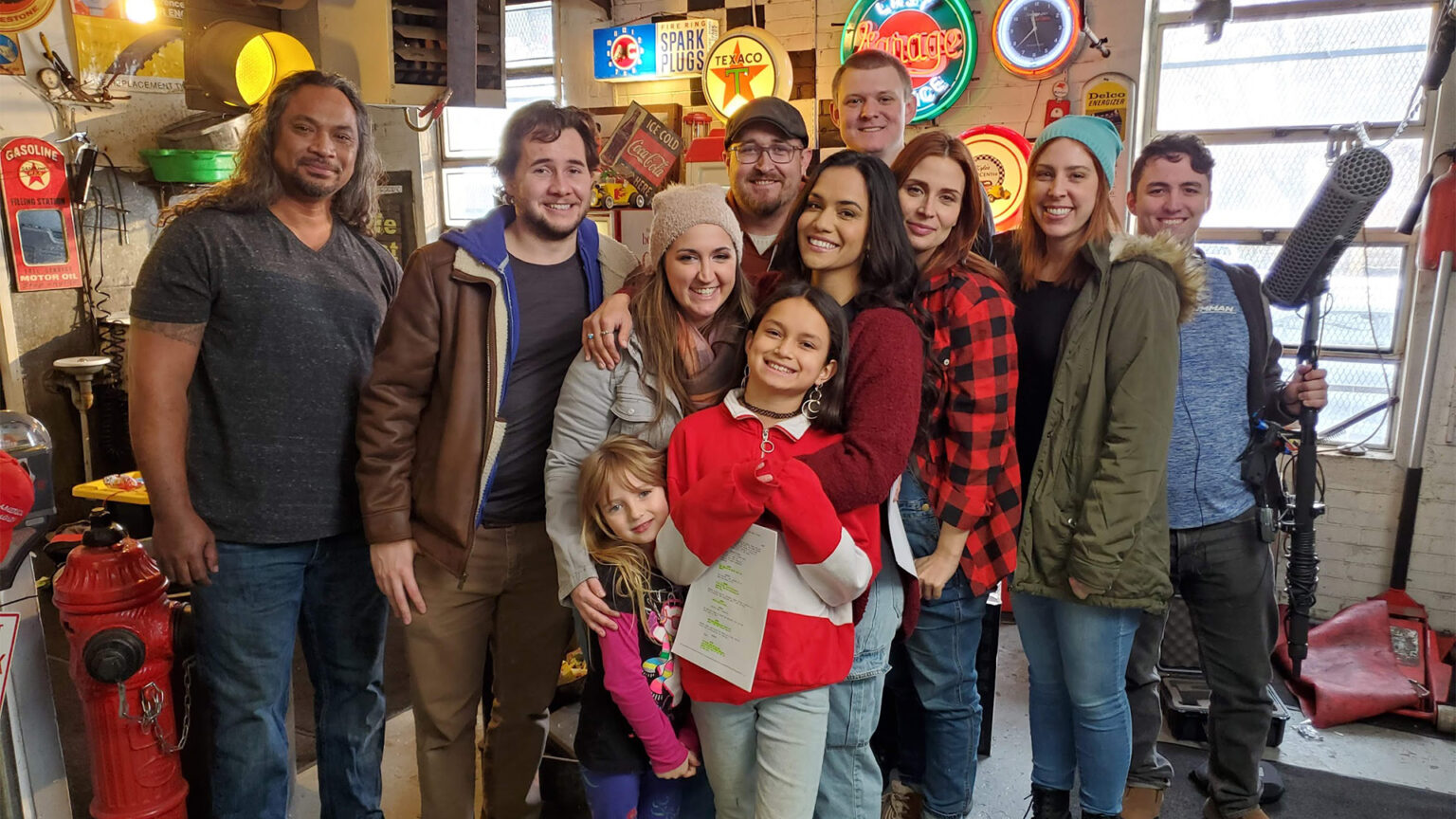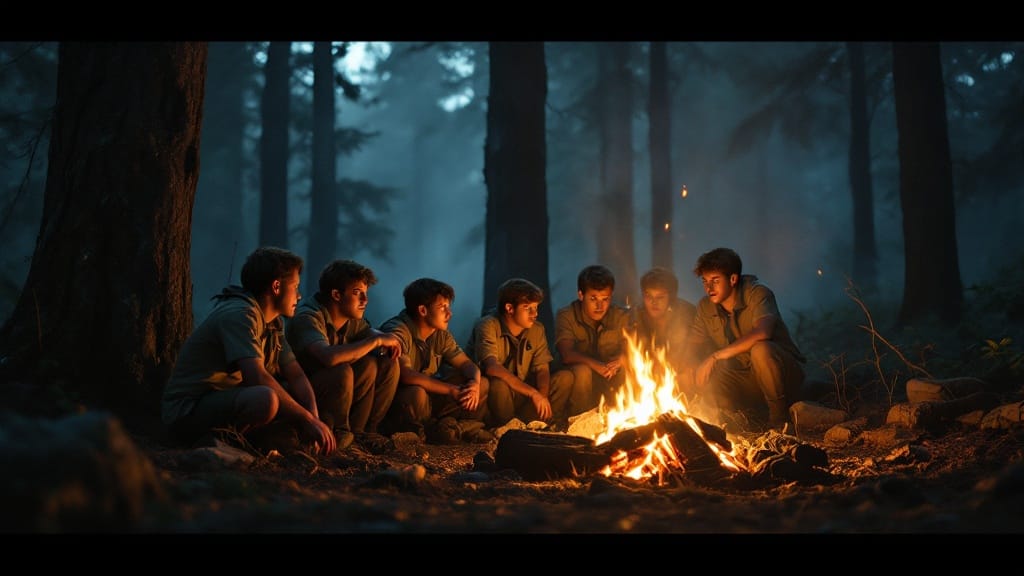Drama
What I Should Have Said

March 2020 the screenplay “What I Should Have Said” pickup up the win for Best Feature Screenplay at the Utah Film Festival. Fast forward to 2024 and the film, sharing the same name, begins its festival run. The story of making “What I Should Have Said” is just as dramatic as the story on the screen. I had the opportunity to talk to Rachelle Price (Bitter Monkey Productions), the director of the film where she shared insights into the film’s origin, challenges faced during production, and the valuable lessons learned along the way.
The story, originally conceived by Landon Kasten eight years ago, took on a life of its own as it transformed from a narrative focused on regret to a powerful tale of self-discovery and the ability to forge a better path in life. The evolution of the script laid the foundation for a film that explores the complexities of choices and the potential for redemption.
“The lessons we learned from making this film were priceless” said Price. “We basically had 4 years of film school. It was exhausting and at times felt impossible, but we all grew and learned so much that it was all worth it. Not to mention the incredible people behind it, and the solid relationships we built.”
However, the path to completion was not without obstacles. The onset of the pandemic posed a significant challenge, forcing the team to navigate through unforeseen hurdles. Self-funded and determined, they faced the loss of locations and cast members, leading to a major rewrite of the story.
“I can’t tell you how tempting it was to give up on this project. It would have been so easy to walk away. But we knew we had to finish it for everyone else that had put so much time and effort into the project. We owed it to them. Ultimately we were so happy with how the new story unfolded. It felt like it was meant to be.”
Reflecting on the arduous journey, Price acknowledges that more time in pre-production could have made a significant difference. The lack of consultation with an entertainment lawyer during the early stages of the project became apparent, as they grappled with releases and contracts essential for solidifying their position for distribution. Price emphasizes the importance of blending artistic vision with a business mindset, recognizing the intricacies that distribution companies prioritize.
“There are so many details that a distribution company cares about, that won’t be anywhere on your radar as a filmmaker.”
Looking ahead, audiences can anticipate the film’s debut during the 2024 festival run, with plans for online distribution to follow. To stay informed about Bitter Monkey Productions’ upcoming projects, Rachelle Price encourages fans to connect through their Facebook and Instagram pages. Always on the lookout for new talent and like-minded individuals, Price and Eve Keener welcome the opportunity to engage with the filmmaking community.
Key cast and crew members of ‘What I Should Have Said” includes Rachelle Price, Eve Keener, Shelley Greene, Kili Maile, Paul Bacera, Landon Kasten, Dominika Danielle, Charan Prabhakar, Kaden Caldwell, Charla Bocchicchio, and Shawn Stevens. A full list of the cast and crew can be found on the films IMDB page
Comedy
Troop 458

WARNING! This review contains SPOILERS!
Troop 458, written by Trevor Allen, captures the often daunting, yet transformative, experience of being the new kid in a world full of unknowns. We follow Sidney, an anxious boy thrown into his first Boy Scouts campout, where he faces both the perils of acceptance and the strangeness of his eccentric scout leader. As spooky campfire tales start to weave into reality, Sidney is forced to confront his fears head-on, finding moments of humor, adventure, and unexpected camaraderie along the way.
I like the concept of Troop 458 because it blends coming-of-age themes with a playful sense of adventure, all wrapped in an atmosphere tinged with just the right amount of mystery. Allen’s writing brings to life a cast of memorable characters, especially through Sidney’s journey of growth. The tension between humor and fear feels authentic to the Boy Scouts’ setting, and it captures the real challenges kids face when trying to fit in.
What resonated with me most was the screenplay’s exploration of courage—not just in facing mythical dangers but in embracing who you are, quirks and all. Some aspects could benefit from a clearer focus on character motivations and tighter pacing to keep the momentum strong, particularly during scenes that blur the line between myth and reality.
The dialogue is great in many places, offering humor that feels natural for a group of young scouts. There were moments where I felt the conversations could be a bit sharper or more distinct to heighten the comedic or emotional impact. Character development is a strong suit, with Sidney’s evolution being both relatable and satisfying, but secondary characters could have a bit more depth to elevate the ensemble.
Allen’s Troop 458 is polished, with solid grammar, spelling, and formatting that adhere to professional standards. The structure is clean and makes for an easy read, setting up scenes that are visually compelling.
Troop 458 delivers an enjoyable mix of humor, heart, and a touch of the supernatural, leaving me eager to see how it might come to life on screen.
Drama
Ellie

WARNING! This review contains SPOILERS!
Directed by Marcus Mejia
Ellie is a refreshing experience that pulled me right into the world of a young, shy man navigating a work meeting while secretly yearning for a bit of magic in his everyday life. We’re taken through his imaginative, musical daydream—a beautiful escape from reality that reveals his true desires. I loved how the film peeled back layers of his personality without a single word of dialogue. Instead, the music carried the narrative, and surprisingly, it worked so well.
Marcus Mejia did an excellent job blending dramedy elements to keep the film engaging. The moments of humor and more emotional beats make the film feel well-rounded. Mejia’s choice to swap dialogue for music was a bold move, and it paid off. I could feel the character’s internal struggles and hopes as the music brought out emotions words couldn’t.
The lighting felt intimate, almost like it was giving us a window into the protagonist’s soul, and the cinematography perfectly captured the whimsical tone of his daydreams. I noticed how smoothly the editing transitioned between reality and fantasy, which made the story’s pacing feel just right. The sound design was on point, with every beat of music syncing beautifully with the character’s emotional highs and lows.
I loved when the protagonist’s daydream overlapped with reality, creating this seamless blend that felt so relatable. I admired how it portrayed the quiet, unspoken dreams we all carry. It was a reminder of the power of our inner worlds and how much magic lies just beneath the surface of our everyday lives.
Ellie left a gentle yet lasting impression. It’s a unique, heartfelt short film that shows how creative risks can pay off. Ellie is a memorable journey that’s definitely worth the watch.
Drama
Finding Acceptance

Directed by Andrew DeBennett
WARNING! This review contains spoilers.
Watching “Finding Acceptance” was an experience that brought me back to those anti-bullying films we’d see in school assemblies. The story follows Mary, a new student in a wheelchair, navigating the often-tough world of school friendships. Initially, she faces teasing from her peers but finds a genuine friend in Liz, who even manages to extend kindness to Mary’s bully, Max. The message is straightforward and clear: acceptance and empathy matter.
I could see what the director was aiming for—Andrew DeBennett notes that the film was both a joy to create and a personal project. The heart of the story shines through, with Kaylah Pollock (Mary) and Laney Hansen (Liz) bringing warmth to their roles. Their connection feels genuine, even if the overall story feels a bit too familiar.
Technically, the film could have used some fine-tuning. The sound mix was rough, with the music often drowning out dialogue. The editing also felt choppy, making it harder to stay immersed in the story. The dialogue leaned into clichés—phrases like “loser” felt outdated and took away from the realism. The cinematography, however, was a bright spot, creating a warm, inviting feel that suited the film’s positive message.
I felt like the story could’ve benefited from more depth. The bullying that Mary faces is minimal, making her eventual friendships feel somewhat predictable. For younger audiences, this simplicity might be engaging and easy to digest, but it misses the chance to delve into the more complex aspects of acceptance.
In the end, “Finding Acceptance” delivers a positive, albeit simple, message. While it didn’t connect with me on a deeper level, I can see it being a useful film for educational settings, especially for younger viewers learning about kindness and friendship.










